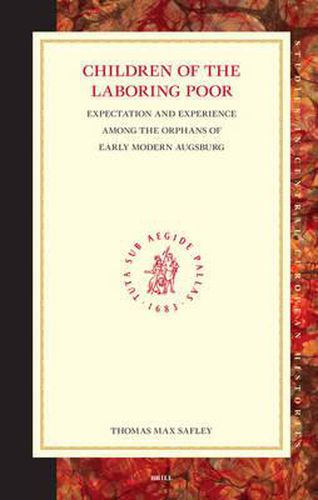Readings Newsletter
Become a Readings Member to make your shopping experience even easier.
Sign in or sign up for free!
You’re not far away from qualifying for FREE standard shipping within Australia
You’ve qualified for FREE standard shipping within Australia
The cart is loading…






A companion volume to Charity and Economy in the Orphanages of Early Modern Augsburg, this book takes up the agency and individuality of the laboring poor and their children. It examines the economic lives of poor, distressed, or truncated families on the basis of 5,734 biographical descriptions of children who passed through the City, Catholic, and Lutheran orphanages of Augsburg between 1572 and 1806. Studied in conjunction with administrative, criminal, and fiscal records of various sorts, these Orphan Books reveal the laboring poor as flexible and adaptive. Their fates were determined neither by the poverty they suffered nor the charity they received. Rather, they responded to changing economic and social conditions by using Augsburg’s orphanages to extend their resources, care for their children, and create opportunities. The findings will interest historians of poverty, charity, labor, and the Reformation.
$9.00 standard shipping within Australia
FREE standard shipping within Australia for orders over $100.00
Express & International shipping calculated at checkout
A companion volume to Charity and Economy in the Orphanages of Early Modern Augsburg, this book takes up the agency and individuality of the laboring poor and their children. It examines the economic lives of poor, distressed, or truncated families on the basis of 5,734 biographical descriptions of children who passed through the City, Catholic, and Lutheran orphanages of Augsburg between 1572 and 1806. Studied in conjunction with administrative, criminal, and fiscal records of various sorts, these Orphan Books reveal the laboring poor as flexible and adaptive. Their fates were determined neither by the poverty they suffered nor the charity they received. Rather, they responded to changing economic and social conditions by using Augsburg’s orphanages to extend their resources, care for their children, and create opportunities. The findings will interest historians of poverty, charity, labor, and the Reformation.